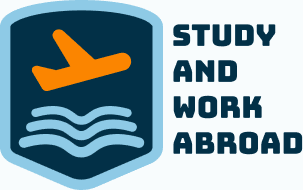Call Us:+91-9920234749, +91-9833420909 info@studyandworkabroad.in

Academics and Education at University Canada West
University Canada West (UCW) is a contemporary, business-oriented institution that offers a blend of traditional and innovative learning approaches. Understanding the academic structure and resources at UCW is crucial for students to navigate their educational journey successfully. This article aims to provide an in-depth look into the academics and education at UCW, highlighting the academic policies, calendar, course descriptions, support resources, and the importance of student feedback.
Academic Policies and Regulations: What You Need to Know
UCW’s academic policies and regulations form the backbone of its educational system. They ensure fairness, consistency, and high academic standards. Key policies include admission policies, which outline the criteria for entry into various programs; the grading system, which provides a standardized measure of academic performance; and policies on academic integrity, which prohibit misconduct such as plagiarism and cheating.
Adherence to these policies and regulations is paramount. They guide students’ academic conduct, ensuring a respectful and productive learning environment. Non-compliance can lead to serious consequences, including academic probation or expulsion. Therefore, students are encouraged to familiarize themselves with these guidelines to avoid inadvertent violations.
The Academic Calendar and Schedules
The academic calendar is a vital tool for students. It outlines important dates and deadlines, including the start and end of semesters, break periods, and examination schedules. Staying aware of these dates helps students plan their studies effectively and avoid missing crucial deadlines.
Course schedules, on the other hand, provide specific details about each course, including timings, duration, and registration deadlines. Understanding the course schedule allows students to manage their time efficiently, balancing their academic commitments with personal and professional obligations.
Course Descriptions and Syllabus: A Detailed Look
Course descriptions and syllabi are essential resources for students. They provide a roadmap of what to expect from each course, including objectives, content, and assessment methods.
A typical course description at UCW outlines the course’s objectives, providing students with a clear understanding of what they will learn. It also details the course content, giving an overview of the topics that will be covered. The assessment methods section outlines how students will be evaluated, whether through exams, assignments, or class participation.
The syllabus provides a more detailed weekly breakdown of the course. It lists the specific topics for each week, required reading materials, and assignment deadlines. Understanding the syllabus allows students to plan their studies effectively and stay on track throughout the semester.
Academic Support and Resources for Students
UCW offers a range of academic support services and resources to assist students in their studies. These include tutoring services, study groups, and academic advising. Tutoring services provide personalized assistance, helping students grasp complex concepts and improve their academic skills. Study groups facilitate collaborative learning, while academic advising helps students plan their academic journey, ensuring they meet their program requirements.
In terms of resources, UCW offers a wealth of library resources, online materials, and workshops. These resources provide students with the tools they need to succeed in their studies, whether they’re looking for academic articles, e-books, or tips on improving their study skills.
The Importance of Student Feedback and Evaluation
Student feedback plays a pivotal role in the continuous improvement of UCW’s academic offerings. It provides valuable insights into students’ experiences, highlighting areas of success and identifying opportunities for improvement. UCW collects student feedback through various means, including course evaluations and feedback surveys.
Course evaluations allow students to provide feedback on their courses and instructors. This feedback is used to improve course content, teaching methods, and overall course delivery. Therefore, students are encouraged to participate in these evaluations, contributing to the ongoing enhancement of UCW’s academic programs.
Conclusion
Understanding the academic structure and resources at UCW is crucial for students’ academic success. From adhering to these guidelines, staying on top of the academic calendar, understanding course descriptions and syllabi, and utilizing the available support and resources, students can enhance their academic performance and overall university experience.
The academic calendar, as outlined on the UCW website, provides a detailed timeline of the academic year, including application deadlines, term start dates, exam periods, and campus closures. For instance, the Winter Term 2023 begins with new student orientation from January 3 to 6, with the first day of classes on January 9. The term concludes with the exam period from March 20 to April 2. Similarly, the Spring, Summer, and Fall terms follow a similar structure, each with specific dates for application deadlines, orientation, term start, and exam periods.
Students are encouraged to download the academic calendar and keep track of these important dates. This will not only help them stay organized but also ensure they are well-prepared for each academic term.
In conclusion, the academic journey at UCW is a comprehensive and enriching experience, designed to equip students with the knowledge, skills, and resources they need to succeed. By understanding and utilizing the academic structure and resources, students can make the most of their time at UCW, achieving academic excellence and paving the way for a successful future.

